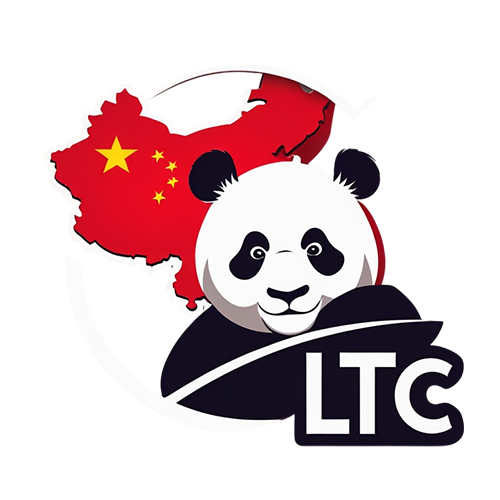Ni hao, globetrotters! If you’re planning on doing business in China, you’re in for an exciting adventure.
But remember, success in the Middle Kingdom isn’t just about having a great product or service.
It’s about understanding and respecting the guide of business culture in China.
Navigating the Dragon: The Essential Guide to Business Culture in China
Understanding the Foundation: What is the Business Culture Like in China?
The business culture in China is deeply rooted in history and tradition, with Confucianism playing a significant role. Think of it as a tapestry woven with threads of respect, hierarchy, relationships (guanxi), and face (mianzi).
It’s a world where patience is a virtue, long-term partnerships are valued above quick wins, and understanding unspoken cues is just as important as what’s actually said.
The Chinese Mindset About Business: More Than Just Profit
The Chinese mindset about business goes beyond simply maximizing profit. While financial success is undoubtedly important, it’s often viewed within a larger context of social responsibility and long-term sustainability. Businesses are expected to contribute to the well-being of the community and maintain harmonious relationships with stakeholders. This is where the concept of “win-win” comes into play. Chinese business partners often seek mutually beneficial outcomes that strengthen the overall relationship.
Culture Shock: How is Chinese Business Culture Different From American Business Culture?
Key Contrasts
Having worked with people from all over the world, I can safely say that the differences between Chinese and American business culture are quite significant. Here are a few key contrasts:
- Relationship-Oriented vs. Transaction-Oriented: As mentioned, Chinese business is built on relationships. American business tends to be more transactional, focusing on efficiency and immediate results.
- Hierarchy vs. Egalitarianism: Chinese business structures are typically hierarchical, with clear lines of authority. American businesses often have flatter structures and encourage more open communication across all levels. The concept of China authority figures in business is a very real aspect.
- Indirect vs. Direct Communication: Chinese communication is often indirect, relying on subtle cues and context. American communication is typically direct and explicit.
- Long-Term vs. Short-Term Focus: Chinese businesses often have a long-term perspective, focusing on building sustainable relationships and long-term growth. American businesses tend to be more focused on short-term profits and quarterly results.
- Collectivism vs. Individualism: Chinese culture emphasizes collectivism and group harmony. American culture tends to prioritize individualism and individual achievement.
Five Rules of Etiquette in Chinese Culture: Your Cheat Sheet to Success

Essential Rules
So, how can you navigate this complex landscape and make a positive impression? Here are five essential rules of etiquette in Chinese culture that will help you succeed in your business endeavors:
- Master the Art of the Greeting: Business etiquette in China greeting starts with a nod or slight bow. Handshakes are also common, but let your Chinese counterpart initiate it. When exchanging business cards, use both hands, ensuring the text faces the recipient. Take a moment to examine the card to show respect. Always present your card to the highest-ranking individual first.
- Respect Hierarchy: Recognize and respect the hierarchical structure within Chinese organizations. Address individuals by their proper titles (Chairman, Manager, etc.) followed by their family name (remember, the family name comes first). Unless you are of higher delegation, it is considered polite to let others enter and leave a room before yourself.
- Embrace the Business Meal: Business meals are an integral part of Chinese business culture. Be punctual, wait to be seated (there’s usually a seating protocol based on hierarchy), and don’t discuss business unless your counterpart initiates it. Try a bit of everything that is served, and remember not to finish all your food (it implies you’re still hungry!). If you’re hosting, expect to pay.
- Practice Indirect Communication: Pay attention to nonverbal cues and be mindful of your own communication style. Avoid direct confrontation or criticism, and try to soften any negative news. Periods of silence are common during negotiations and should not be interrupted. When pointing, use an open palm instead of a finger.
- Gifts and Guanxi: Gift-giving in Chinese business culture is a delicate topic. While small tokens of appreciation are generally acceptable, avoid extravagant gifts that could be perceived as bribes. Focus on thoughtful gestures that demonstrate your respect for the relationship. Don’t give clocks as gifts since the phrase for “giving a clock” sounds like attending a funeral. Understand the importance of guanxi (relationships) and invest time in building genuine connections.
Beyond the Basics: Deeper Dives into Chinese Business Culture

Crucial Aspects
Want to go beyond the basics? Here are a few other crucial aspects to consider:
Punctuality is Paramount: Being late is considered rude and can damage your reputation. Always arrive on time for meetings and appointments.
Dress the Part: Formal attire is generally preferred, especially for initial meetings. Opt for conservative suits in muted colors. Avoid bright hues and bold patterns, which might be perceived as inappropriate. Ladies should avoid low-cut tops or revealing clothing. Observe the levels of formality in China and adjust accordingly.
The Power of Numbers: Be aware of the significance of numbers in Chinese culture. 8 is considered lucky (rhymes with fortune), while 4 is unlucky (sounds like death). Avoid using the number 4 in business dealings.
Navigating Public Holidays: Be mindful of major holidays such as the Lunar New Year (Spring Festival) and National Day, which can disrupt business operations. Factor these holidays into your scheduling.
Communication Styles: Business communication style in China differs from many Western countries. Small talk is essential at the beginning of a meeting. Learn a few basic Chinese phrases to show respect and effort.
The Importance of Face (Mianzi): “Saving face” is crucial. Avoid doing anything that could cause your counterpart to lose face, such as publicly criticizing them or putting them in an awkward position.
Doing business in China can be incredibly rewarding, but it requires a genuine commitment to understanding and respecting the local culture. This guide of business culture in China is just a starting point. By embracing the principles of respect, relationship building, and cultural sensitivity, you’ll be well on your way to forging successful and lasting partnerships in this dynamic and fascinating country.
So, pack your bags, brush up on your Mandarin, and get ready to embark on an unforgettable business adventure! Jiāyóu! (Add oil! or Good luck!) And as always, feel free to share your own experiences and insights in the comments below. I’d love to hear your stories!
Discover our others culture guide:












